Throwback to the FYORD summer school, organized by PostDocs for Master’s and PhD students
At the beginning of this year, a group of postdocs from GEOMAR and Kiel University, with the great support of FYORD and PACT, came together to brainstorm ideas for a potential summer school tailored for Masters and PhD students in marine science. As postdocs, we wanted to share our experience and try to organize something not only scientifically enriching but also adventurous – a program that could connect people from diverse backgrounds in marine science. This was made possible thanks to FYORD, who initiated the organization of the summer school.
As time went on, the members of the organizing team changed, and so did our ideas. Our initial concept was to centre the summer school around managing and working with data. Then, we thought it would be even better to make the experience more hands-on. We envisioned taking students aboard a research vessel to collect data from the Baltic Sea and give them a firsthand look at how scientists conduct fieldwork on research cruises. Unfortunately, all GEOMAR ships were already booked, so we explored the option of using a research vessel from Alfred Wegener Institute (AWI) and hosting the summer school on Helgoland at the AWI facilities. In the end, though, logistical challenges led us to set this idea aside.
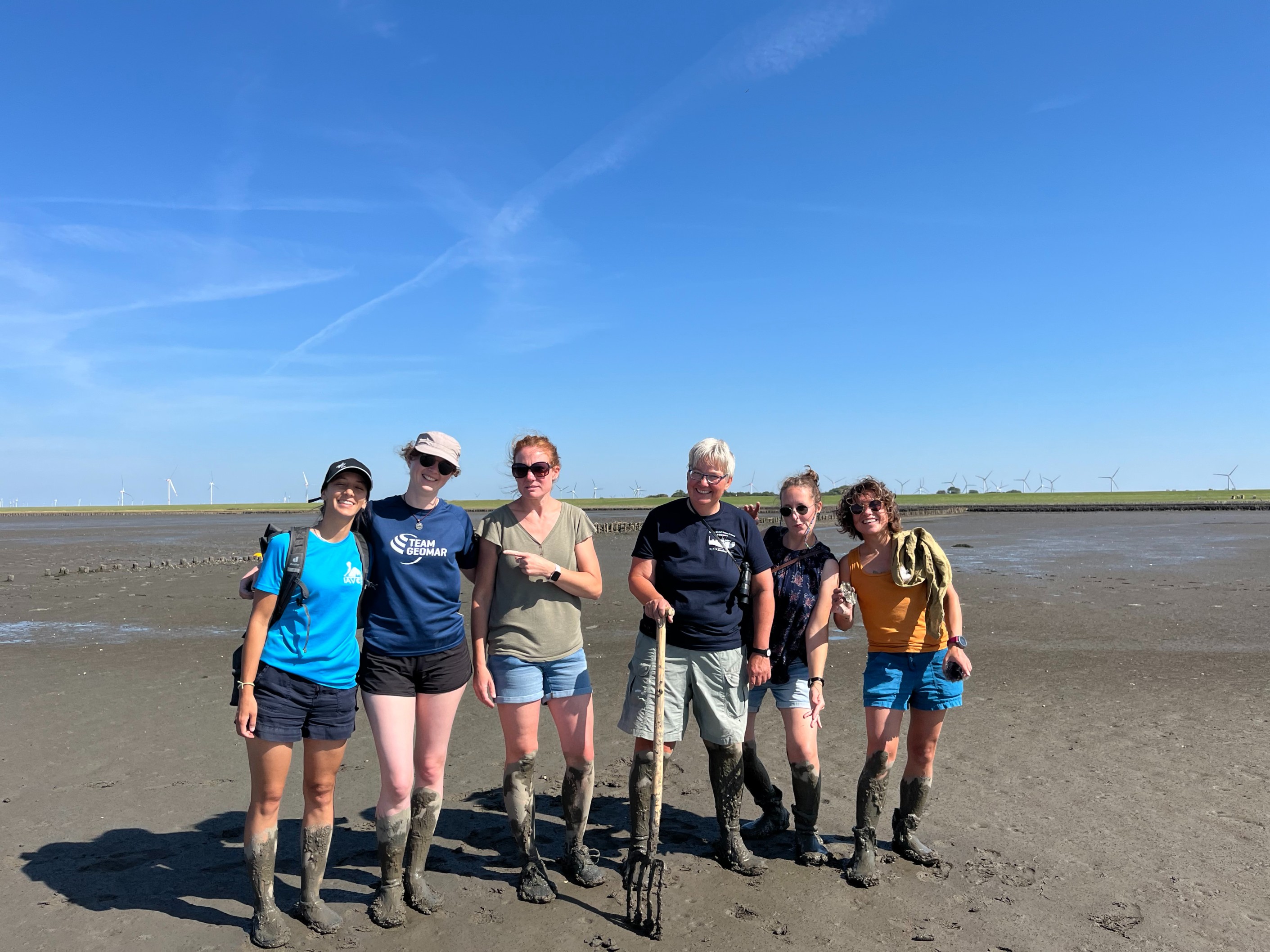
Finally, after a few months, five postdocs finalized the topic of the summer school. We called it “Diving Into Change: Exploring Interdisciplinary Marine Science Perspectives on Our Changing Oceans” (Check out the website for the details). We decided to open our call not only for students in marine science but for all the students who are interested in the ocean and want to connect to ocean research in the future. And I am pretty sure that our final outcome turned out to be no less exciting than if we had a research ship.
On the 25th of August, 26 Master’s and PhD students studying across Europe arrived at GEOMAR for an icebreaker event, kicking off a five-day journey, diving into change. The students came from a variety of disciplines beyond marine science, but all of them shared a curiosity about the current and future state of our changing oceans.
Throughout the summer school, we covered a range of marine science topics, including marine biology, biogeochemistry and carbon cycle, the ocean floor and its resources, and physical oceanography. Students participated in lectures, lab work, and field trips. Our idea was to invite postdocs from GEOMAR and Kiel University to give most of the talks because they are already experts and have valuable knowledge to share. In my opinion, it worked well, and the communication between the lecturers and the students was easy and natural.
Each day started with lectures, followed by hands-on lab and fieldwork. On Monday, students explored experiments focused on benthic communities – organisms that live on or near the seafloor (benthocosm). These experiments, which are visible year-round along the western shore of the Kiel fjord, were introduced in detail, and the students even had the chance to participate in them. The next day, they toured the chemical labs to learn about alkalinity, and later they snorkelled in Mönkeberg, observing seagrass and macroalgae as well as their inhabitants. Macroalgae and seagrass are examples of blue carbon, as these coastal vegetated ecosystems can store carbon absorbed from the ocean. (And yes, the beaches along the Kiel fjord are fantastic for seeing underwater life!)
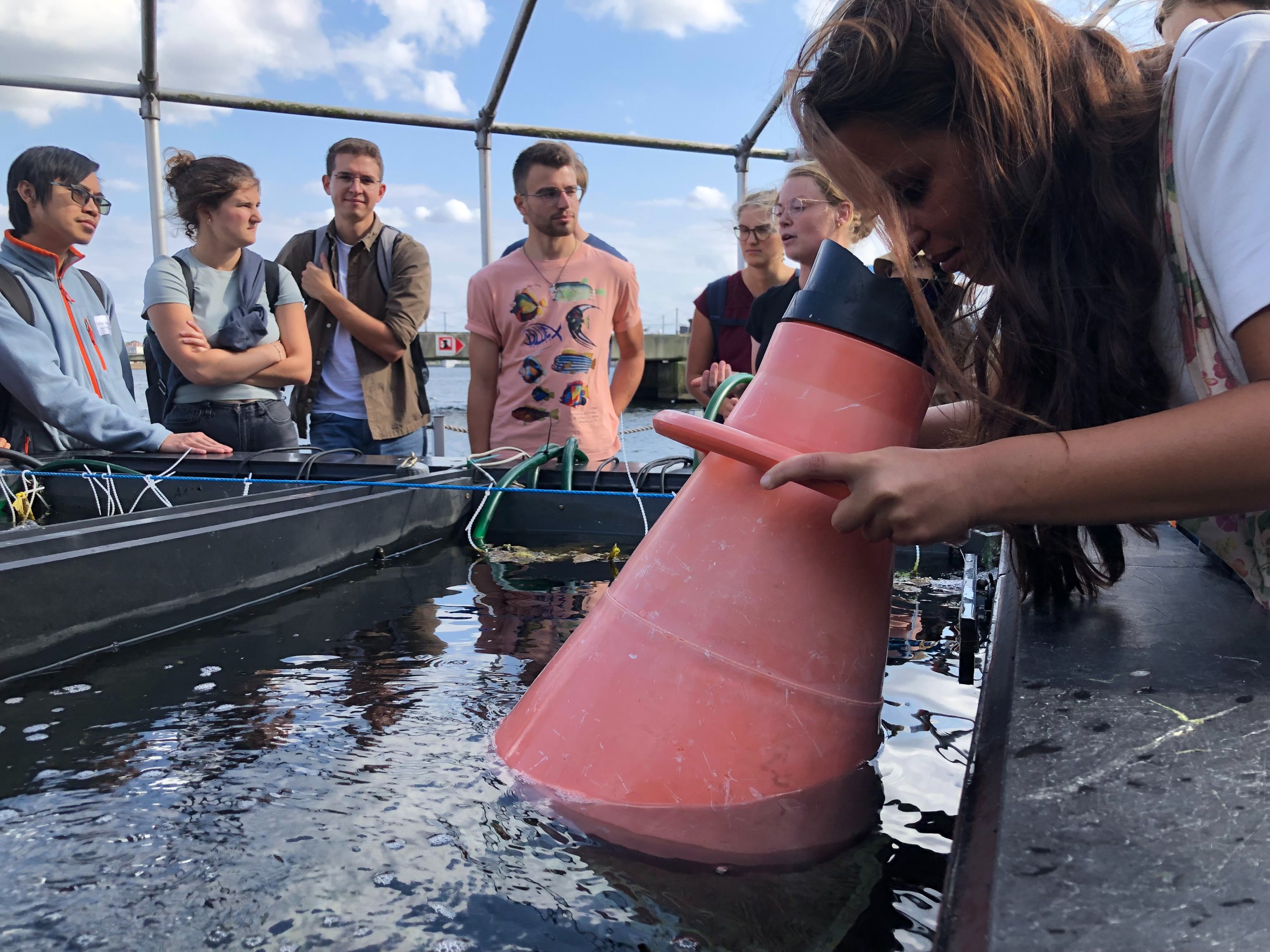
Benthocosm (Photo by Jonas Blendl) 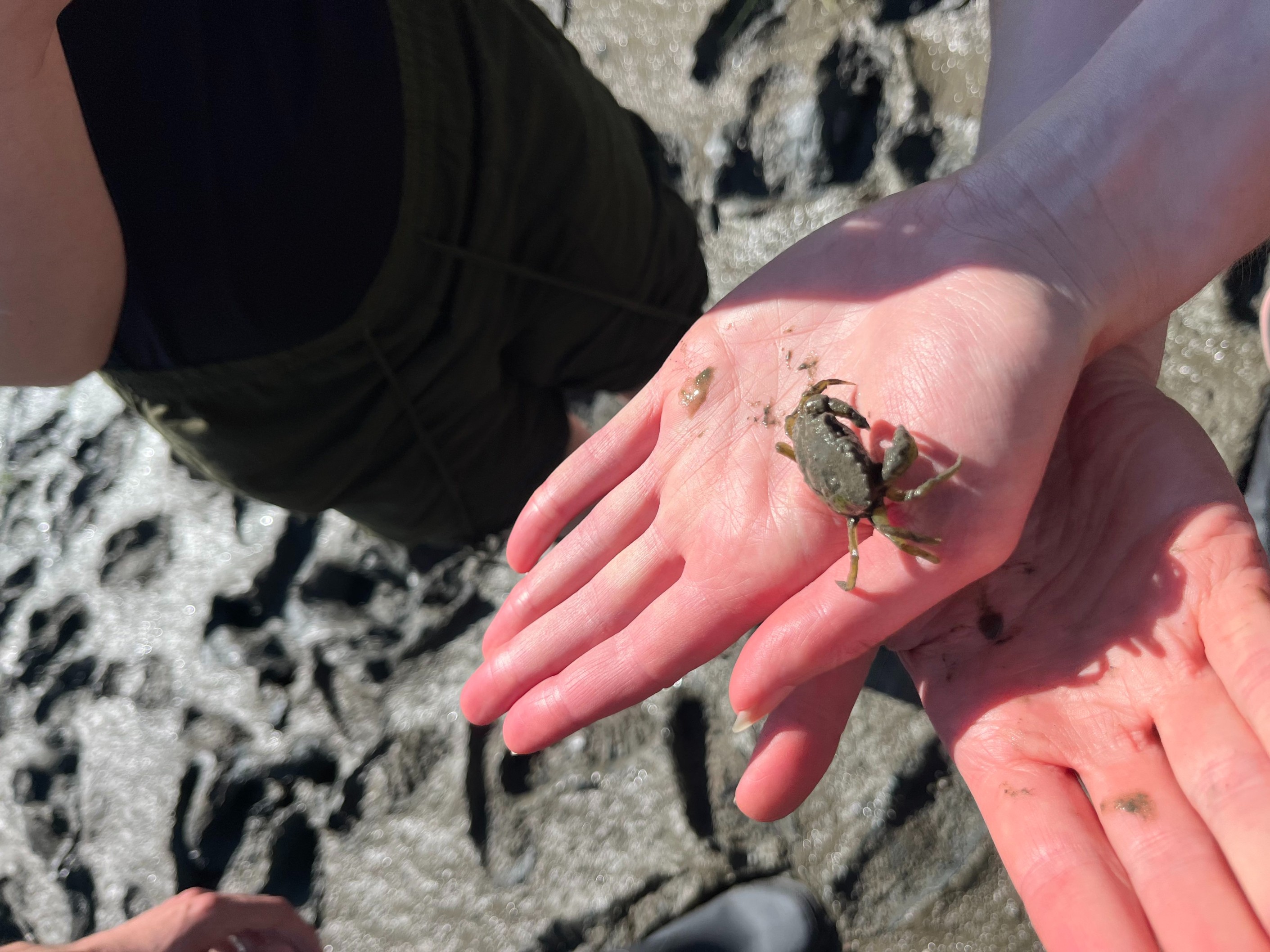
A local from the Wadden Sea.
In the middle of the week, the students had a big day. After a long bus ride, we arrived at FTZ Büsum, the Research and Technology Centre, which is a part of Kiel University. There, Katja Heubel introduced us to the ecosystems of the tidal flats followed by the excursion into the Wadden Sea. The students got thrilled exploring the local living beings and things got quite muddy in the end. The tour was really exciting and most of all got fancy mud boots in the end (check out the photo above).
The last two days the students were again in the facilities of GEOMAR, where they got an introduction to the processes happening on the sea floor and learned how the ARENA2 is used to plan expeditions to explore the sea floor. The ARENA (Artificial Research Environment for Networked Analysis) lab is a simulator which offers visualization services to all scientific fields at GEOMAR, as well as to related marine sciences in Kiel, with an initial emphasis on seafloor geology.
Afterwards, the students got a tour of the core repository, a huge fridge where all the sediment cores, obtained by GEOMAR scientists, are stored. And at the end of the day, they got hands-on experience working with sediment cores.

Working with cores. 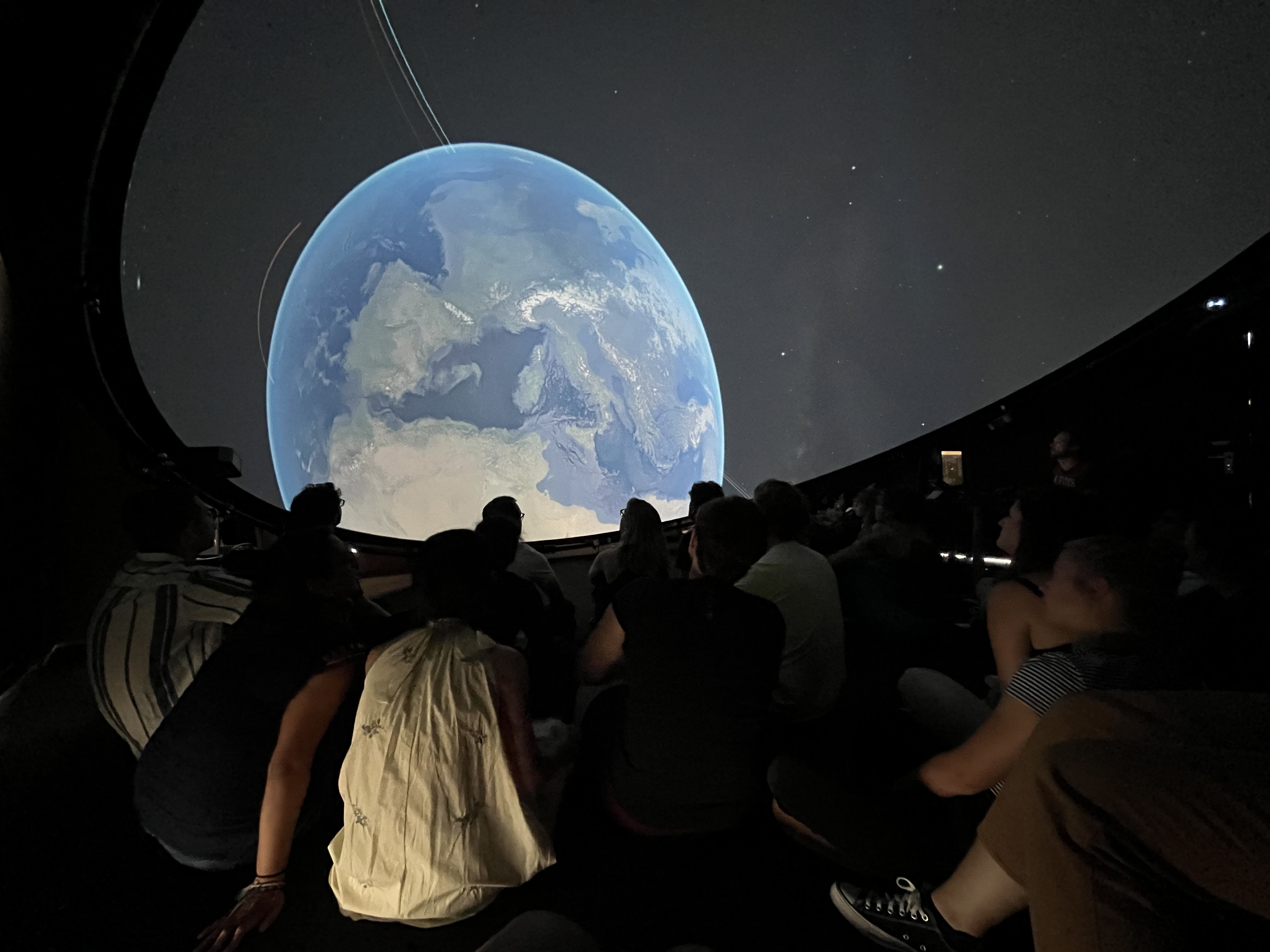
ARENA2
Friday was all dedicated to the physical processes in the ocean, concluding with a fascinating tour to TLZ, Technology and Logistic Centre, where different complex devices are stored, tested, set up and even invented. Students could see underwater robots, ROVs, gliders, and other tools used by researchers for studying the ocean in all its diversity.
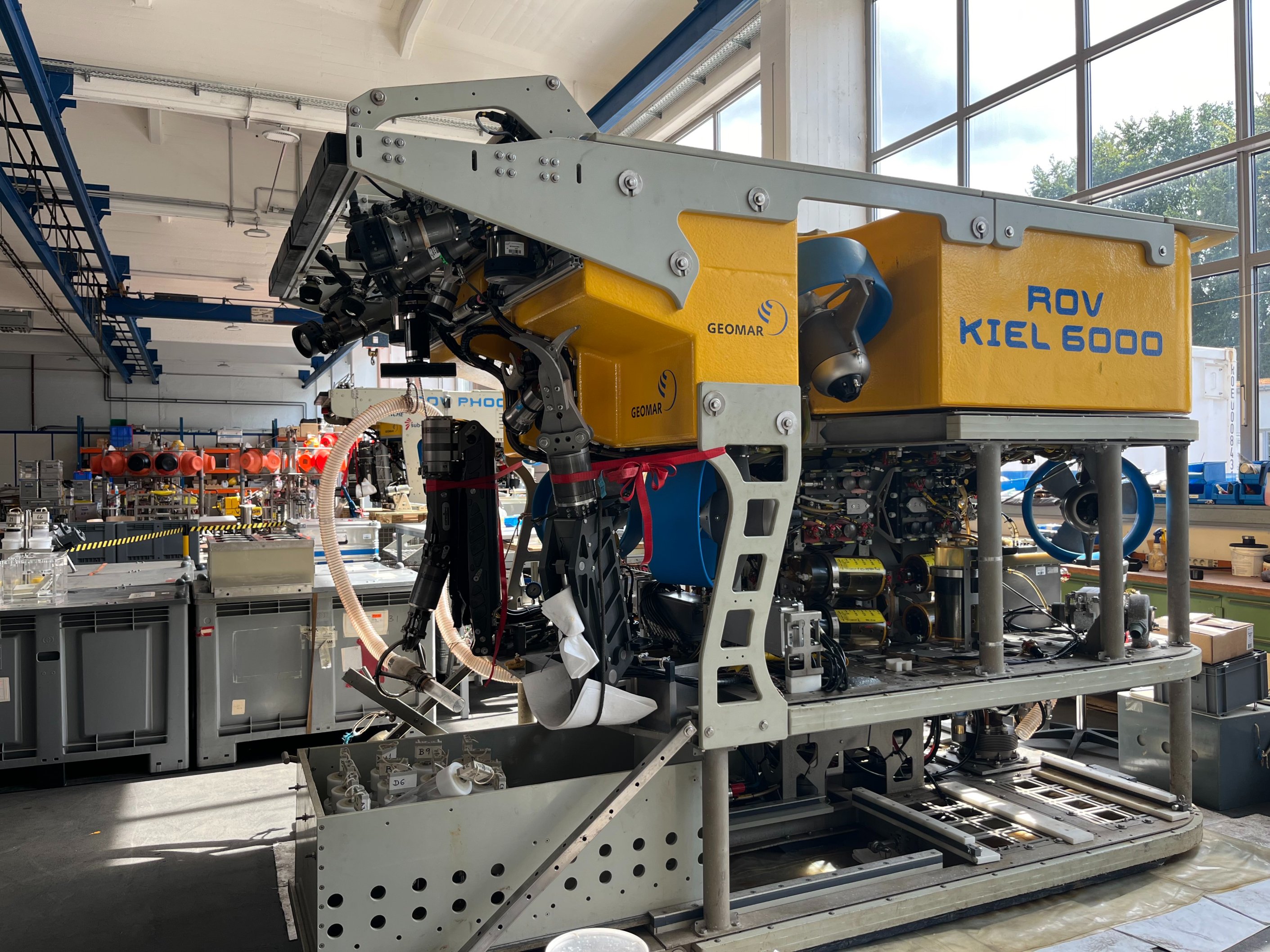
Beyond these scientific activities, students spent time socializing and exploring the surroundings of Kiel. Luckily, we had a pretty good summer weather. Personally, I found the entire experience both exciting and fulfilling. For me, as well as for some of the other postdocs, it was our first time organizing such a large-scale and valuable event. I was happy to get to know so many people with interesting backgrounds and bring them together to Kiel to share and discover the science happening here at GEOMAR and Kiel University. I hope this summer school becomes an annual event, with even more postdocs involved and a wider reach to students from around the world. And who knows, maybe in the following summer school, students will get a chance to go on board a research vessel. I’m already looking forward to next year!
Margarita
Organizing Team:
Edel Mary O’Sullivan
Margarita Liadova
Babett Günter
Franz Kanngießer
Mariana Andrade
Supported by:
Christine Haunhorst and Daphné Pochhammer from FYORD
Christel van den Bogaard, Insa Kristina Stolz, Maren Wanke from PACT
